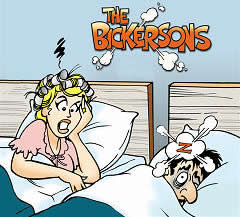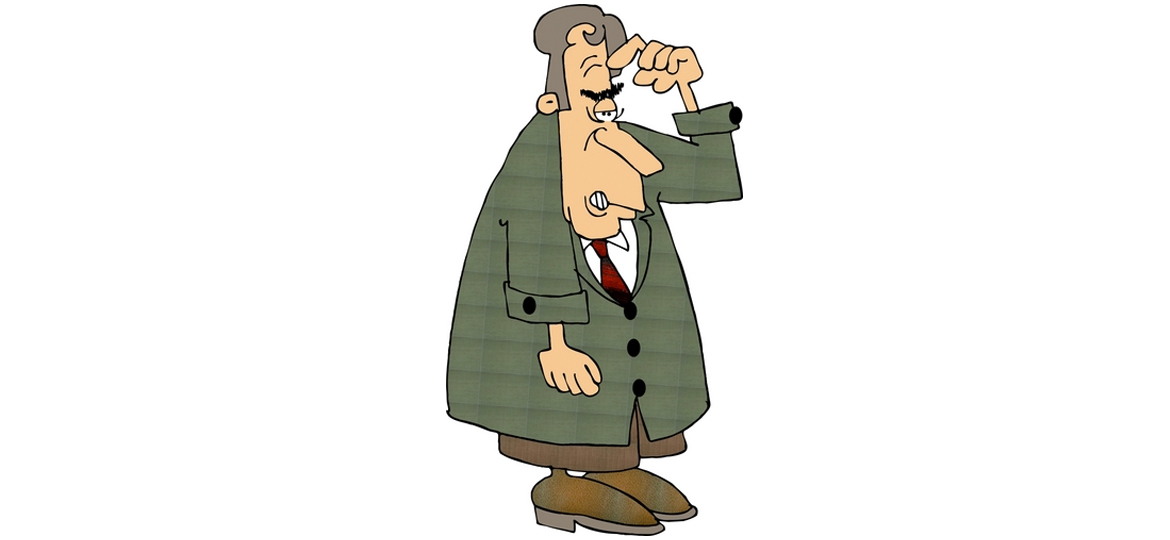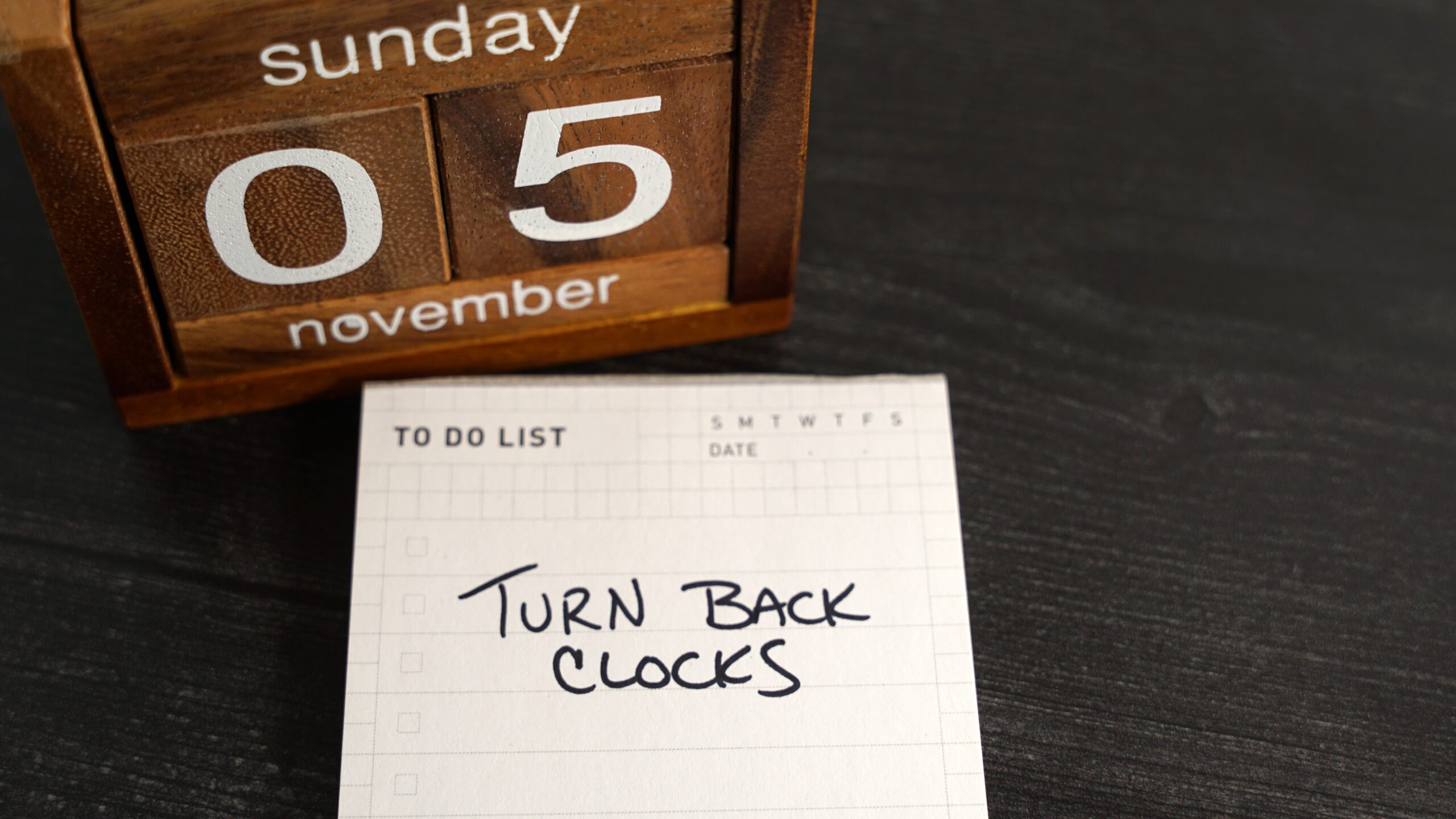When I was a young married person, I would sometimes find myself in the company of an older married couple who had been together for a very long time. And it was impossible not to notice that they would frequently disagree over the most unimportant subjects. And this disagreement would invariably lead to an argument.
I used to wonder to myself if this was the way they had been communicating for the past 40 years, and if so, they’ve done a very good job of concealing their battle scars. Or, could the pattern of their discourse be something more recent? And if so, what was the fatal wedding anniversary that became the turning point?
The image of the quarreling older couple became front and center as my husband and I celebrated another year of marriage. And I fear that we might have reached that critical number.
I say this now, because the other day, as we were “discussing” the best way to slice a bagel (I was slicing, he was fault-finding), we were definitely on the brink of becoming that other couple, The Quibblers.
So what exactly is quibbling? While the word may sound like a British board game, it is, in reality, a verbal exchange that involves arguing about something that really doesn’t matter.
 Had this been the only incident, it would have gone unnoticed. He’s entitled to his views about bagel cutting. But since he’s never had to rush me to the ER with a sliced palm, he could just look away and keep his opinions to himself. And if I do slice my palm, it will be all his fault, so he should stop reminding me to be careful.
Had this been the only incident, it would have gone unnoticed. He’s entitled to his views about bagel cutting. But since he’s never had to rush me to the ER with a sliced palm, he could just look away and keep his opinions to himself. And if I do slice my palm, it will be all his fault, so he should stop reminding me to be careful.
But that was not the only incident. A pattern was definitely emerging.
The recent delivery from Amazon Prime evolved into a 5 minute quibble about the best way to open the box, which obviously had been sealed by some very unhappy or highly sadistic warehouse worker.
The proper place to store the butter in the refrigerator so it would not be hidden by larger objects became another issue for trivial pursuit. (So big deal. Sometimes you have to move the milk container to find the butter.)
What really was the correct way to hang the dog’s leash because if you do it this way instead of that way, it keeps falling off the hook?
Or how to get from here to there, when both ways were equally as good?
And where was the best place to leave messages so that the person who is most oblivious (him) would not fail to see them?
I could go on with more examples, but I’m sure by now you know what I mean. Whatever happened to arguing about really important things, like the true position of the toilet seat?
I don’t believe that quibbling is limited to married couples. It can exist between siblings or good friends. Any close relationship is at risk. Ever witness two women in a kitchen trying to put a meal together? They’re likely to disagree over the best way to boil water.
So how did we arrive at this petty place? Perhaps it’s the result of too much togetherness. Or just being older and more set in our ways, convinced that each of us knows best. I do, of course.
I wonder if quibbling is inevitable in a long-term relationship. Perhaps so, but at the same time, it can remain quite benign if we can step back and laugh at ourselves.
But there is a slippery slope. The Quibble, left unchecked, has the potential to degrade into The Bicker.
The Bicker is quibbling with an edge. Whereas quibbling is relatively mild-mannered, bickering can be petulant and bad-tempered.
Like that old radio show, where Blanche (Frances Langford) would awaken John (Don Ameche) in the middle of the night so she could argue with him? (Of course, I was just a child at the time, but I remember my parents listening to it.)
So, my dear, as an anniversary gift to each other, let’s not let the quibbling run amok. Because “Becoming the Bickersons” is an essay I never want to write.









MJ & I laugh while we quibble (most of the time).
‘Like the old radio show’ once again emphasizes that you are the older sibling!
So show some respect!
A woman after my wn heart as usual, Susan. Love it!
Read this one to my Larry. We “bickered’ last nite over how bad our cab driver was even tho it was pouring and muddy near the subway construction site on 2nd Ave. (yes I was the nicer one of course). I gave my husband’s the book A Man Called Ove as an anniversary present and call him my little curmudgeon. Subtle? I blame it on the aging of husbands. Friends? I never cook with anyone. In NY my kitchen is too small! Thanks for pointing out a positive for what I felt was a deficit.
And we viewed your video. Lovely
We can raise quibbling to an art form!
Howie and I actually quibbled over how to open a bagel – not because he was worry that I might cut myself. Oh, no – I was ignorant of the tradition of using a fork!
I thought forks were for English muffins, not bagels
It was English muffins, not bagels, but who’s quibbling.
This was not a quibble but an out-and-out correction of the misuse of a kitchen utensil.
And, it was a Thomas’s, no less!
For some couples, quibbling might be foreplay! For others, sadly, the whole act.
Your comment about quibbling being foreplay reminds me of Seinfeld and make up sex.
Yes, often quibbling and maybe especially bickering can sometimes lead to hot make-up sex. Unfortunately, relying on that type of “foreplay” can lock couples in an unhealthy, downward spiral of their relationship. But hey, once in a while…?!
I love how you look at life and relationships . . . “go for it girl”
Thanks Kelly. Hope all is well with you.